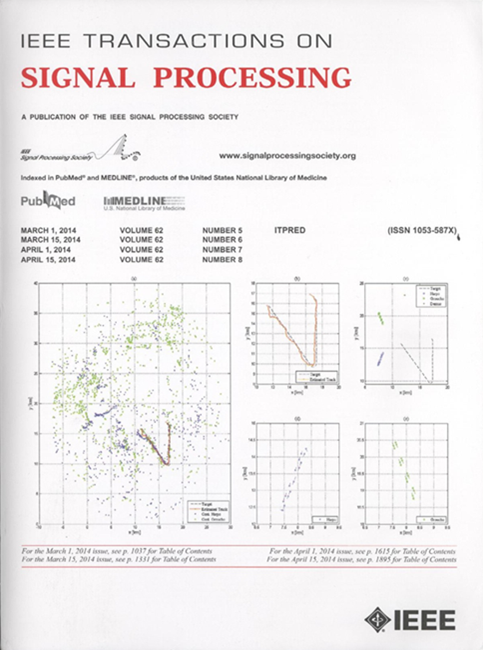卡尔曼滤波辅助联邦库普曼学习
IF 5.8
2区 工程技术
Q1 ENGINEERING, ELECTRICAL & ELECTRONIC
引用次数: 0
摘要
实时控制和估计对于工业自动化和未来医疗保健等应用至关重要。这一愿景的实现在很大程度上依赖于与非线性系统的有效交互。因此,利用深度学习的力量对非线性系统进行线性化的库普曼学习,已经成为减轻非线性固有复杂性的最成功的例子之一。然而,现有文献假设可以获得准确的系统状态和丰富的高质量数据进行Koopman分析,这在现实场景中通常是不切实际的。为了填补这一空白,本文考虑了只有系统观测数据可用且观测数据不足以完成独立库普曼分析的情况。为此,我们提出了卡尔曼滤波辅助联邦库普曼学习(KF-FedKL),它是卡尔曼滤波和联邦学习与库普曼分析相结合的先驱。通过这样做,我们可以实现具有隐私保证的协作线性化。具体来说,我们使用一个简单而有效的损失函数来驱动深度库普曼网络的线性化训练。为了从观测数据中获得不含个体信息的系统信息,我们利用了无气味卡尔曼滤波器和无气味Rauch-Tung-Striebel平滑。为了实现客户机之间的协作,我们采用了联邦学习框架,并开发了一个修改过的fedag算法来编排协作。对所提出的框架进行了收敛性分析。最后,通过大量的数值模拟,我们展示了KF-FedKL在各种情况下的性能。本文章由计算机程序翻译,如有差异,请以英文原文为准。
Kalman Filter Aided Federated Koopman Learning
Real-time control and estimation are pivotal for applications such as industrial automation and future healthcare. The realization of this vision relies heavily on efficient interactions with nonlinear systems. Therefore, Koopman learning, which leverages the power of deep learning to linearize nonlinear systems, has been one of the most successful examples of mitigating the complexity inherent in nonlinearity. However, the existing literature assumes access to accurate system states and abundant high-quality data for Koopman analysis, which is usually impractical in real-world scenarios. To fill this void, this paper considers the case where only observations of the system are available and where the observation data is insufficient to accomplish an independent Koopman analysis. To this end, we propose Kalman Filter aided Federated Koopman Learning (KF-FedKL), which pioneers the combination of Kalman filtering and federated learning with Koopman analysis. By doing so, we can achieve collaborative linearization with privacy guarantees. Specifically, we employ a straightforward yet efficient loss function to drive the training of a deep Koopman network for linearization. To obtain system information devoid of individual information from observation data, we leverage the unscented Kalman filter and the unscented Rauch-Tung-Striebel smoother. To achieve collaboration between clients, we adopt the federated learning framework and develop a modified FedAvg algorithm to orchestrate the collaboration. A convergence analysis of the proposed framework is also presented. Finally, through extensive numerical simulations, we showcase the performance of KF-FedKL under various situations.
求助全文
通过发布文献求助,成功后即可免费获取论文全文。
去求助
来源期刊

IEEE Transactions on Signal Processing
工程技术-工程:电子与电气
CiteScore
11.20
自引率
9.30%
发文量
310
审稿时长
3.0 months
期刊介绍:
The IEEE Transactions on Signal Processing covers novel theory, algorithms, performance analyses and applications of techniques for the processing, understanding, learning, retrieval, mining, and extraction of information from signals. The term “signal” includes, among others, audio, video, speech, image, communication, geophysical, sonar, radar, medical and musical signals. Examples of topics of interest include, but are not limited to, information processing and the theory and application of filtering, coding, transmitting, estimating, detecting, analyzing, recognizing, synthesizing, recording, and reproducing signals.
 求助内容:
求助内容: 应助结果提醒方式:
应助结果提醒方式:


